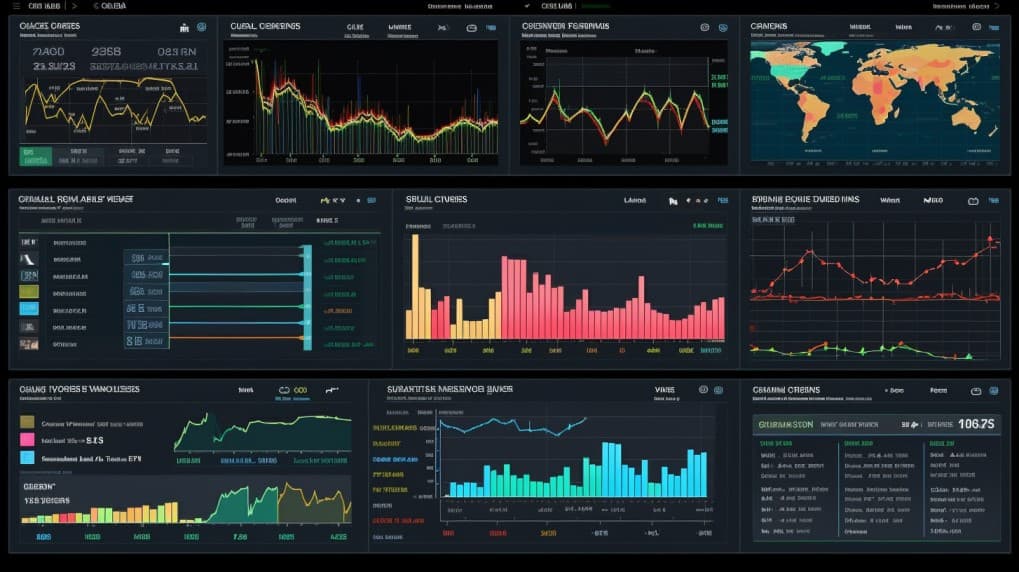
ARKF Vs LEGR: Tracking and Exposure
Exchange-Traded Funds (ETFs) have revolutionized the investment landscape, providing investors with an efficient way to access diversified exposure across various sectors and asset classes. In this article, we will delve into a comprehensive comparison between two prominent ETFs: ARKF (ARK Fintech Innovation ETF) and LEGR (First Trust Indxx Innovative Transaction & Process ETF). We'll explore critical aspects such as ETF tickers, full names, issuers, sectors, top holdings, capitalization, strategy, tracking methods, and exposure.
ARKF Vs LEGR: Overview
ARKF and LEGR are two distinct ETFs that offer exposure to different facets of the financial technology sector. ARKF, managed by ARK Invest, focuses on innovative companies disrupting the financial industry through technology-driven advancements. On the other hand, LEGR, managed by First Trust Advisors, targets companies involved in innovative transaction and process improvements. These differences in focus create varying opportunities and risks that investors should thoroughly assess.
ARKF Vs LEGR: Sectors and Top Holdings
The ARKF ETF covers a wide spectrum of financial technology sectors, including digital wallets, blockchain technology, peer-to-peer lending, and more. Some of its top holdings include companies like Square Inc., PayPal Holdings, and Zillow Group. LEGR, meanwhile, emphasizes industries such as electronic payment processing, financial exchanges, and automated financial services. Understanding these sectors and the top holdings of each ETF is crucial for investors seeking exposure to specific segments of the fintech sector.
 ARKF overlap ARKF VS LEGR
ARKF overlap ARKF VS LEGR
ARKF Vs LEGR: Capitalization and Strategy
ARKF has garnered significant attention due to its innovative investment strategy and active management approach. Its capitalization and asset under management have grown substantially, reflecting investor confidence in its unique investment thesis. LEGR, being focused on companies that drive transactional and process innovations, offers a different strategy with its own set of opportunities and risks. Investors must carefully evaluate the capitalization and strategy of each ETF based on their investment objectives.
ARKF Vs LEGR: Tracking and Exposure
ARKF aims to provide exposure to companies that are at the forefront of fintech innovation, and its investment team actively seeks out disruptors in the industry. LEGR, in contrast, seeks to track an index that includes companies engaged in innovative transaction and process improvements. This tracking difference impacts the kind of exposure investors can expect from each ETF. Understanding the tracking methodologies and exposure nuances helps investors make informed decisions.
Conclusion
ARKF and LEGR are distinct ETFs catering to investors interested in the dynamic fintech sector. As you explore the potential of these ETFs, remember that in-depth insights into holdings, correlations, overlaps, and other critical aspects can be gained through tools like ETF insider. This user-friendly app offers a wealth of information, enabling investors to make well-informed decisions based on comprehensive data.
Disclaimer: This article is intended for informational purposes only and does not provide investment advisory services.
Sources:
Get startedFAQ
Why is ARKF better than LEGR?
ARKF may be considered better than LEGR for some investors due to its specific focus, offering diversification.
Does LEGR beat ARKF?
LEGR's performance relative to ARKF will vary over time, depending on market conditions.
Should I invest in ARKF or LEGR?
The choice between ARKF and LEGR should align with your investment goals, risk tolerance, and desired exposure.
Are ARKF and LEGR good investments?
Both ARKF and LEGR can be suitable investments depending on individual investment strategies, goals, and risk profiles.
What is the correlation between ARKF and LEGR?
The correlation between ARKF and LEGR can vary over time, reflecting differences in performance.